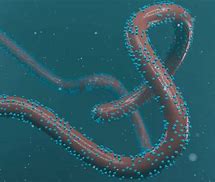
Arusha, Tanzania// — The East African Community (EAC) Secretariat has called for a swift and coordinated regional response to contain the ongoing Marburg Virus Disease (MVD) outbreak declared in Rwanda.
The outbreak seriously threatens regional health security and requires urgent action from all EAC Partner States to prevent its spread across borders.
On the 27th of September 2024, Rwanda’s Ministry of Health declared the Marburg Virus Disease (MVD) outbreak, and as of the 30th of September 2024, there were 29 confirmed cases and 10 deaths with more than 297 contacts under close monitoring, and healthcare workers have been disproportionately affected.
The World Health Organization (WHO) has raised concerns about the potential regional spread of the disease due to confirmed cases in districts near the borders of the Democratic Republic of the Congo (DRC), Uganda, and Tanzania.
“There is an urgent need for a coordinated regional response to contain the spread of this highly infectious virus through swift identification, isolation, and treatment of cases and enhanced screening at borders and health facilities,” said Hon. Andrea Aguer Ariik Malueth, EAC Deputy Secretary General, in charge of Infrastructure, Productive, Social & Political sectors
He called for Partner States to strengthen their public awareness and infection control protocols, including handwashing, avoiding physical contact with symptomatic individuals and surveillance at borders and health facilities.
Marburg virus is a severe zoonotic disease, similar to Ebola, and is associated with a high fatality rate varied from 24% to 88% depending on virus strain and case management. Transmission occurs through direct contact with the bodily fluids of infected individuals or contaminated surfaces. There is no specific vaccine or treatment, so supportive care remains the main form of medical intervention.
Tanzania’s previous experience with a Marburg outbreak in the Kagera region in 2023 highlighted the importance of rapid contact tracing and community engagement. The EAC urges Partner States to share lessons learnt and technical expertise to inform the ongoing response efforts. Meanwhile, Rwanda, recognised for its robust healthcare infrastructure, is currently managing the outbreak with international support, but the scale of the challenge underscores the need for regional collaboration.
Symptoms of Marburg Virus Disease typically include fever (often high), severe headache, muscle aches and pains, fatigue and weakness. Gastrointestinal symptoms such as severe diarrhoea, abdominal pain, nausea, vomiting and bleeding from various parts of the body (in later stages of the disease). To Reduce the risk of contracting Marburg, the public is advised to:
- Practice proper hand hygiene using soap and water or alcohol-based hand sanitisers.
- Avoid contact with fruit bats and their excretions, as these are considered the natural hosts of the virus.
- Practice safe burial practices to minimise exposure to bodily fluids of individuals who have died from MVD.
- Wear personal protective equipment (PPE) when caring for infected individuals or handling animals that may be reservoirs of the virus.
- Avoid contact with nonhuman primates in endemic areas, as these can also transmit the virus.
Individuals suspecting that they may have contracted Marburg should:
- Seek medical care immediately, as early supportive treatment is crucial to improve survival chances.
- Isolate themselves to prevent spreading the virus to others.
- Notify local health authorities or go to the nearest healthcare facility for assessment.
- Avoid contact with others, particularly through bodily fluids, until the suspicion of Marburg infection is ruled out.
The East African Community Secretariat, in collaboration with partners including the German Government through GIZ and KfW, is supporting the Partner States response and preparedness efforts to the ongoing MVD and Mpox outbreaks and further enhancing pandemic preparedness efforts with a focus on enhancing regional resilience to health emergencies.
The major intervention areas include the development of a pool of Rapidly Deployable Experts (RDE) to ensure quick deployment of experts in outbreak areas, strengthening Risk and Crisis Communication, establishing 43 Water, Sanitation, and Hygiene (WASH) facilities in border areas and prioritised the training of border staff and health workers.
Furthermore, the EAC Secretariat is supporting the Partner States laboratory testing capacities through the supply of diagnostic PCR kits for Marburg virus (filoviruses) and Monkeypox virus, facilitating field deployment of the existing Mobile laboratories at strategic locations and the donation of additional laboratory equipment such as sequencers.
All these efforts have now positioned the EAC Secretariat as a key player in the preparedness and response to current and future health threats, highlighting the region’s proactive approach to safeguarding public health.


